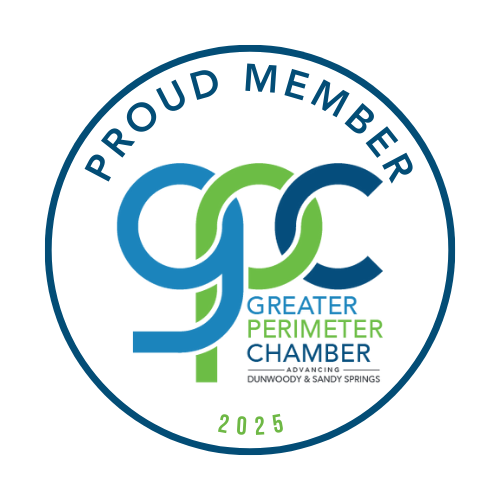The intertwining of narcissism and substance abuse presents psychological challenges that create a complicated and harmful cycle for the individuals involved. This article delves into how narcissism and substance abuse are intertwined and discusses the impact this connection has in terms of treatment options.
What is Narcissism?
People with Narcissistic Personality Disorder (NPD) often show a heightened feeling of self-importance and have dreams of boundless achievements and authority. They also believe they are exceptional and one-of-a-kind individuals who merit special privileges.
While it is common for people to exhibit some level of self-centeredness, which can be seen as usual and beneficial in moderation, Narcissistic Personality Disorder (NPD) represents a dysfunctional form of self-centered behavior that can result in severe challenges in relationships and emotional turmoil for individuals affected by it. The absence of empathy and an exaggerated belief of deserving special treatment commonly prompt those with NPD to resort to manipulative or exploitative actions that may harm their relationships and distance them from others.
The Link Between Narcissists and Drug Abuse
The connection between narcissism and substance abuse is intricate and diverse. Narcissistic people might resort to drugs for purposes like dealing with internal emotional distress or boosting their self-perception and also using drugs as a form of self-treatment. The absence of empathy and the inclination to prioritize personal needs above others’ welfare can result in risky actions, such as drug abuse.
Some people who exhibit narcissistic tendencies face inner struggles related to feelings of not being good enough and having low self-regard despite appearing confident and superior on the surface level. These individuals might turn to substances as a way to self-medicate to avoid dealing with these distressing emotions or to uphold their sense of self-importance. The misuse of drugs can offer relief from feelings of inadequacy, which enables them to sustain their overinflated self-esteem.
Narcissists might turn to drugs to boost their feelings of grandeur and superiority by using substances that trigger sensations of euphoria or invincibility further to solidify their belief in their qualities and abilities.
Narcissism can negatively impact relationships by causing issues like manipulation and a lack of empathy toward others’ feelings and needs. This can lead to isolation and potentially increase the risk of turning to substance abuse as a way to cope with the situation. Loneliness and isolation often associated with narcissism might drive people towards seeking comfort in drugs and worsen their addiction issues.
Selfish people take risks as they feel entitled and invulnerable to consequences. This behavior may involve trying and misusing drugs. The mix of acting on impulse without considering the outcomes, along with seeking excitement, can result in a pattern of substance misuse.
The Influence of Co-occurring Narcissism and Substance Abuse
The combination of narcissism and drug addiction can pose a challenging clinical scenario to deal with in practice settings. People grappling with both NPD and substance misuse tend to exhibit heightened symptoms and experience less favorable treatment results than those dealing with just one of these conditions independently. Their limited self-awareness and reluctance to acknowledge issues, along with their resistance towards therapy, often create challenges in involving them in treatment approaches.
Individuals with both Narcissistic Personality Disorder (NPD) and substance abuse face an increased risk of relapse due to factors such as impaired decision-making and impulsive behavior combined with using substances as a means to manage the emotional distress they experience underneath it all.
Methods of Treatment for Narcissists and Drug Abuse
Dealing with individuals who have both tendencies and struggle with drug abuse demands a holistic and unified strategy for effective treatment results. It is vital to tackle the traits of substance misuse together to enhance the effectiveness of therapy interventions. Therapeutic efforts should concentrate on enhancing self-awareness and empathy while also addressing the root distress that fuels both narcissism and addiction.
- Cognitive Behavioral Therapy (CBT): One approach that can be beneficial for people dealing with Narcissistic Personality Disorder (NPD) and substance abuse is CBT, which aims to recognize and alter negative thought patterns and behaviors while also nurturing healthier coping strategies and enhancing social connections.
- Motivational Interview (MI): MI can effectively involve individuals in therapy sessions by enhancing their willingness to make positive changes by discussing their conflicting feelings about treatment and highlighting the advantages of recovery.
- Group Therapy Insights: Although it can be difficult for those with NPD, group therapy offers a chance for them to enhance their skills and gain valuable feedback from peers to develop a more balanced self-assessment perspective, with the help of skilled facilitation to navigate group dynamics effectively.
Medication might be recommended to help with anxiety and depression symptoms or other mental health issues linked to a person’s narcissism and substance abuse.
Narcissists and Drug Abuse
Atlanta Recovery Place’s commitment to providing integrated treatment for co-occurring disorders stands out. We are an addiction recovery center offering treatment for both substance abuse and mental health disorders.
Our drug and alcohol rehab is dedicated to offering support for individuals facing challenges with both narcissism and drug addiction issues simultaneously in a compassionate manner that acknowledges the coexistence of these conditions. With tailored treatment approaches and proven interventions in a nurturing setting, we aim to empower individuals to conquer their substance dependencies while also tackling the root psychological factors influencing their substance misuse.
Atlanta Recovery Place assists individuals in attaining enduring recovery and enhancing their well-being by taking a holistic approach to each person’s needs and well-being. Call today and speak with a trained professional to learn more about narcissists and drug abuse.









